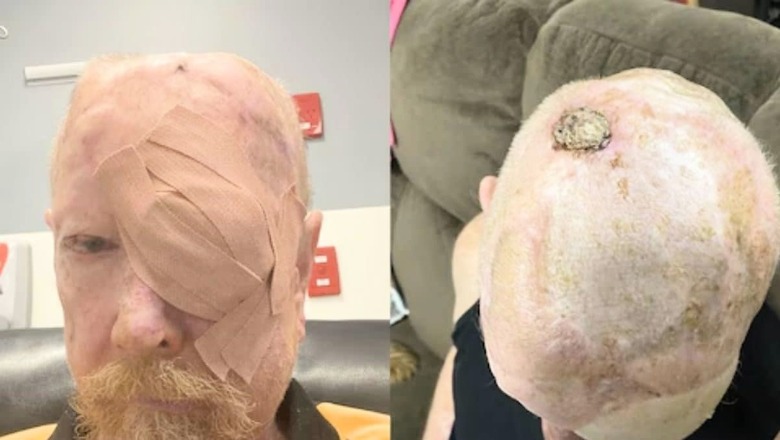
views
Protection from harmful UV rays is quintessential for your skin and eyes. A recent incident of a person suffering from rare skin cancer has generated a huge buzz online.
Leigh Raaschou, a junior lifesaver from Victoria, Australia, spent much of his life working outdoors. He admitted to never wearing a hat or sunscreen and is now facing the consequences.
In a recent interview with ABC, Raaschou revealed about his skin suffering, “As you can see by the skin grafts and things I’ve had, I would have had well over 100 skin cancers cut off in that time, probably closer to 200.”
The pictures of Raaschou reveal him with scars and blemishes all over, highlighting how his skin has suffered due to not being protected from the sun.
He described how being in the sun caused skin cancer, melanoma and other health problems all over his body. Raaschou explained that the cancer spread to his bone, leading to surgery where his skull was replaced with a titanium plate. Unfortunately, he developed an infection between the plate and his brain, which required another surgery to remove it. Because of the potential risks, healthcare providers opted against reinserting the titanium plate.
Raaschou shared about the recent revelation of pioneering Australian research investigating the effects of cannabis on melanoma cell growth.
The study looked at how a cannabis extract called cannabinoid PHEC-66 affected melanoma cells. This extract could slow down cell growth and cause cell death. Led by Australian scientists, the research focused on how PHEC-66 interacts with receptors on melanoma cells. In lab tests, the concentrated form of the extract showed promising results, hinting that it could prove to be a beneficial treatment for melanoma.
Melanoma, though less common causes different types of skin cancer deaths. It spreads quickly and often resists traditional treatments. Every year, over 13,000 Australians receive a melanoma diagnosis, while approximately 434,000 undergo treatment for non-melanoma skin cancers.
The study also found that PHEC-66, mainly made up of CBD, stops melanoma cells from multiplying, which could help stop cancer from spreading.




















Comments
0 comment